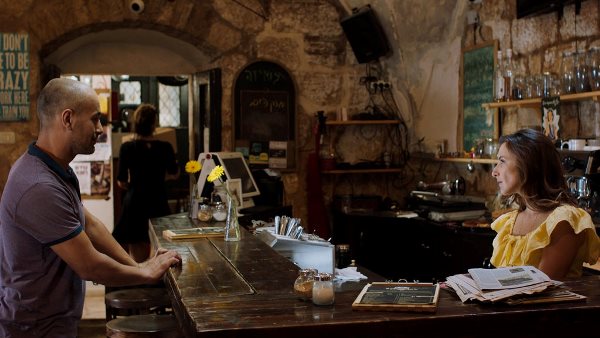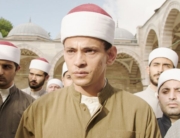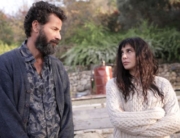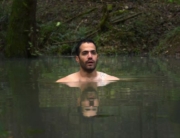Opening with a police beating, The Reports on Sarah and Saleem is a more serious and grimly realistic take on romance between Israelis and Palestinians than the usual Romeo and Juliet romantic fiction.
Most of what follows is a flashback to two attractive, mature, married, and adulterous grown-ups in divided Jerusalem: Sarah (Sivane Kretchner), living in modern Israeli West Jerusalem, and Saleem (Adeeb Safadi), from isolated Palestinian East Jerusalem, where director Muayad Alayan grew up. As a teenager working at a hotel and café before the second Intifada in 2000, Muayad saw such clandestine relationships develop between Palestinians and Israelis even when the security wall was under construction. Those memories inspired this well-acted fictional film, written by his San Francisco–based brother Rami Alayan.
Sarah runs a café; Saleem delivers bread to her. Their late-night assignations are quick hook-ups in back of the delivery van in an empty parking lot. The circles around them are revealed to be more complex than just infidelity. Sarah’s husband, David (Ishai Golan), is a colonel with ties to military intelligence, and his ambitions have meant he, Sarah, and their young daughter have had to move several times for his career. An upcoming promotion probably entails a transfer to a southern desert town. Saleem’s traditional Muslim wife, Bisan (Mais Abd Elhadi), is on maternity leave from her university studies before she gives birth; her brother is helping to support them.
Saleem is vulnerable to his politically-connected brother-in-law’s pressure to make surreptitious pick-ups and deliveries for some extra cash. Sarah enjoys her flirtation with Saleem, even as her waitress picks up the vibes. They keep taking more chances, indicating that this daring is part of the thrill of the attraction. Both restless with hiding in the van, Sarah accompanies Saleem on a delivery and steps out to a West Bank bar, enjoying the pretense of being a foreign tourist, but a local guy’s insistent come-on escalates into multiplying problems, first among the Palestinians.
As both cheating spouses initially assert denials to protect their marriages, their defenses just make their partners more suspicious, causing them to investigate on their own. The Israeli husband uses official resources, and the Palestinian wife shakes off her presumed deference. The military, of course, has oppressive tools that increasingly threaten Saleem’s freedom and his life, but his wife has moral authority at her disposal, which raises the tension and defies stereotypes. Though filmed under difficult circumstances in Bethlehem and East and West Jerusalem, at least one Palestinian-oriented film festival has rejected screening it for the casting of two Israeli actors.
The director in his press statements exaggerates that what is at stake could only happen in Jerusalem, as similarly challenging romances have been set between enemies during wars, between races during apartheid and in the Jim Crow South, and so forth. However, in bringing the risks of private human folly into this specific context, the contrasts of privilege, class, culture, and bitter politics are placed in very personal and stark relief.

















Leave A Comment